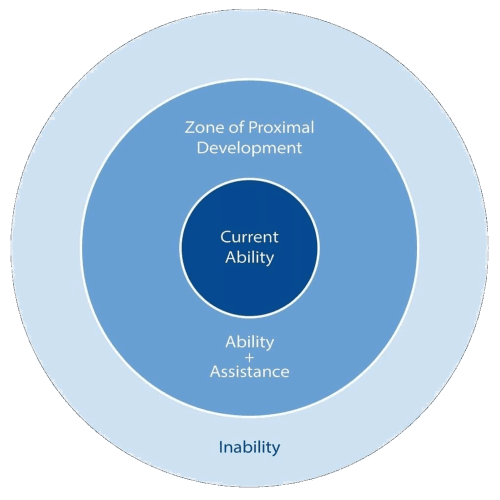Cognitive Development Across the Lifespan Chapter Notes | AP Psychology - Grade 11 PDF Download
Introduction
Cognitive development explores how thinking, reasoning, and problem-solving evolve from infancy to adulthood. Key theories, such as Piaget’s stages of cognitive development and Vygotsky’s social learning theory, provide frameworks for understanding these changes. While cognitive abilities like accumulated knowledge often increase with age, abstract reasoning and processing speed may decline. In older adults, conditions like dementia, particularly Alzheimer’s, can significantly impact cognitive function. This chapter outlines these developmental processes and their implications across the lifespan.Piaget’s Cognitive Stages of DevelopmentSchemas in Piaget's theory
Piaget’s theory explains how children construct mental models, or schemas, to understand their environment. These schemas adapt through two key processes:
- Assimilation: Incorporating new information into existing schemas.
- Accommodation: Modifying or creating new schemas when existing ones are inadequate.
This adaptation occurs gradually or in sudden insights as children engage with their surroundings.
Sensorimotor Stage (Birth to ~2 Years)
Infants learn through sensory experiences and physical actions. A key milestone is developing object permanence:
- Newborns believe objects cease to exist when out of sight.
- By around 8 months, babies search for partially hidden objects.
- By 18–24 months, infants fully grasp that objects exist even when unseen.
Preoperational Stage (2–7 Years)
Children begin using symbols and language to represent the world, engaging in pretend play. They also start developing theory of mind, recognizing that others hold different beliefs and thoughts.
Limitations include:
- Lack of conservation (understanding that quantity remains constant despite appearance changes).
- Inability to mentally reverse actions.
- Animistic thinking (attributing life to inanimate objects).
- Egocentrism (difficulty seeing perspectives other than their own).
Concrete Operational Stage (7–11 Years)
Children develop logical thinking about concrete situations, mastering:
- Conservation of number, mass, and volume.
- Reversibility of actions.
- Classification and seriation (organizing objects by characteristics or order).
- Spatial reasoning.
Abstract and hypothetical thinking remains challenging.
Formal Operational Stage (12 Years and Beyond)
Abstract thinking emerges, enabling:
- Systematic problem-solving.
- Abstract reasoning.
- Hypothetical thinking.
- Understanding complex scientific concepts.
Vygotsky’s Social Learning Theory
 Learning Growth Zone
Learning Growth Zone
Vygotsky emphasized that cognitive development is deeply rooted in social interactions and cultural contexts. Children learn through relationships and cultural tools, such as language.
A cornerstone of his theory is the Zone of Proximal Development (ZPD):
- The gap between what a child can do independently and with assistance.
- Learning is most effective within this zone.
- Adults and peers provide scaffolding to support learning.
Cultural tools and language significantly shape cognitive growth.
Adult Cognitive Changes
- Cognitive abilities change variably across adulthood.
- Patterns of Change:
- Crystallized intelligence (knowledge from experience) increases or remains stable.
- Fluid intelligence (problem-solving, abstract reasoning) gradually declines.
- Processing speed generally decreases.
- Memory changes depend on type (e.g., working memory may decline, long-term memory may remain stable).
- Dementia:
- Significant deviation from normal aging, affecting multiple cognitive domains.
- Interferes with daily functioning.
- Alzheimer’s disease is the most common cause of severe cognitive decline.
- Early detection and intervention can help manage symptoms.
|
35 docs
|
FAQs on Cognitive Development Across the Lifespan Chapter Notes - AP Psychology - Grade 11
| 1. What are the main stages of Piaget's Theory of Cognitive Development? |  |
| 2. How does Vygotsky's Social Learning Theory differ from Piaget's Theory? |  |
| 3. What are some cognitive changes that occur during adulthood? |  |
| 4. What role does language play in Vygotsky's theory of cognitive development? |  |
| 5. How can understanding cognitive development theories benefit educators? |  |















